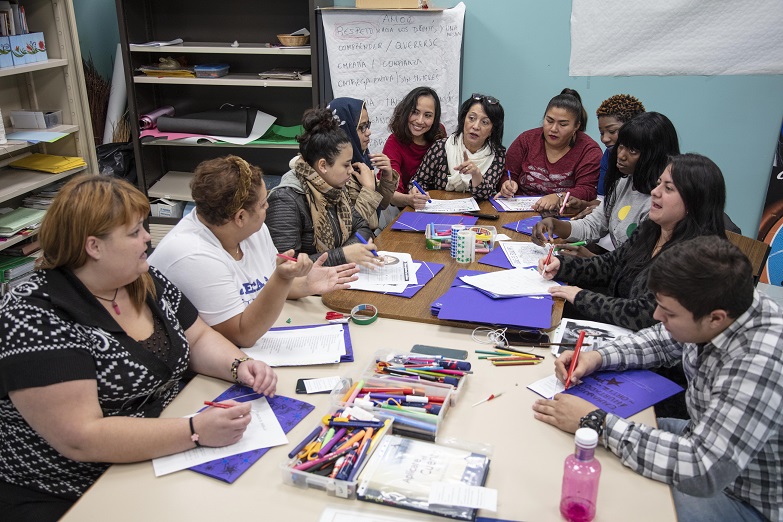
Rethinking the fight against poverty
The establishment of the International Day for the Eradication of Poverty (Paris, 17 October 1987) reaffirmed the fact that poverty is a violation of human rights. Every year on this date, the need to join efforts to eradicate poverty and to ensure respect for human rights is reaffirmed. Poverty remains one of the main social issues in our advanced and economically developed societies. A reality that is mainly based on two elements: the advance of income inequality and the weakening of the employment-productivity-consumption model as a model of development and universal social inclusion.
The reference to human rights refers, among other things, to their universal dimension. And it is precisely this question of universality that comes into play in the eradication of poverty. In short, we are looking for social mechanisms that make possible this universality of the right to have an income that makes possible the material conditions for a dignified life.
As stated in article 25 of the Universal Declaration of Human Rights (Paris, 10 December 1948):
Everyone has the right to a standard of living adequate for the health and well-being of himself and of his family, including food, clothing, housing and medical care and necessary social services, and the right to security in the event of unemployment, sickness, disability, widowhood, old age or other lack of livelihood in circumstances beyond his control.
Underlying the wording of this right is the idea of subsidiarity of the right to economic benefits (livelihood insurance); a subsidiarity that is conditional on people’s “own” ability to provide themselves with the means of subsistence.
Behind this idea lies our paradigm of the Social Welfare State, a social model basically based on the centrality of the labour market as an element of participation in the construction of the commons, as a system of access to “own means” of subsistence, as a mechanism for the distribution of wealth and the generation of social protection rights. In other words, of a citizenship constructed principally on the basis of the status of “worker-worker”.
However, in the new post-modern era, this “social norm of employment” understood as “having a full-time, open-ended contract that allows one to live in dignity and generates social rights throughout one’s life” has lost much of its force. As the data from the Labour Force Survey, the AROPE indicator, the FOESSA Foundation’s reports on social inclusion and inequalities, etc., repeatedly show, the “social norm of employment” is not fulfilled for a large part of the employable Basque population either. In addition, access to employment is not an option for part of the population, and therefore, it cannot be the only means of social and economic inclusion.
The persistence of poverty, the increase in income inequality, combined with the weakness of an economic and employment-centred development model, leads us to rethink the elements of the fight against poverty. Caritas is committed to the need to move towards universal minimum income policies that are decoupled from participation in the labour market (both in terms of the production of protection and as a central objective of social inclusion). This disconnection between income and employment opens up the challenge of generating new paradigms and spaces for inclusion. Reflection on the advance of unconditional universal incomes goes hand in hand with reflection on new forms of social bonding, contribution to the commons, personal and social development, which transcend the model centred exclusively on employment and consumption as the driving force for social growth.
Ana Sofi Telletxea
Head of the Social Reality Observatory of Caritas Bizkaia
